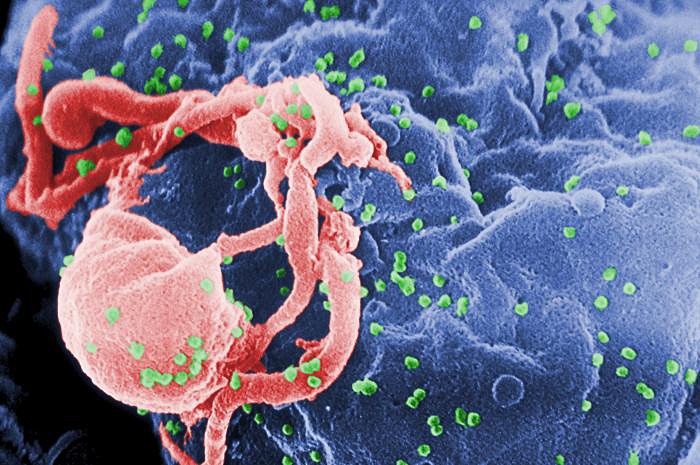Rare Case of Female-to-Female HIV Transmission Reported

A 46-year-old woman in Texas likely acquired HIV from her female partner in what health officials say is a rare case of female-to-female transmission of the virus.
The two women had been in a monogamous sexual relationship for six months. One was HIV-positive and had not taken medication for the human immunodeficiency virus in two years, according to a new case report by the Centers for Disease Control and Prevention. HIV is the virus that causes theacquired immunodeficiency syndrome (AIDS).
The second woman had previously tested negative for HIV, but during the relationship, she became infected with the virus. This woman did not have other risk factors for HIV: she had not had heterosexual sex in 10 years, and she did not use injection drugs. [The 14 Oddest Medical Case Reports]
Reports of HIV transmission between two women are rare, and in previous cases, researchers were often unable to determine if another factor, such as injection drug use, had caused the infection.
Still, because HIV can be present in vaginal fluid and menstrual blood, transmission of the virus between two women is theoretically possible, the researchers said.
In the current case, the two women reported sexual practices that could have transmitted the virus: They had unprotected sex that involved oral contact with vaginal fluids, shared sex toys, had unprotected sex during menstruation and sometimes engaged in rough sex that induced bleeding. (The authors defined "unprotected sex" as any sexual activity without using barrier precautions.)
"Although rare, HIV transmission between [women who have sex with women] can occur," the report said.
Get the world’s most fascinating discoveries delivered straight to your inbox.
"Discordant couples of any sex should know their HIV status and receive education and counseling services, especially instruction in safer sex practices," the CDC said. Discordant couples are those in which just one person is infected with HIV.
People with HIV should continue to receive medical care for their infections, as control of the virus with HIV medications can reduce the risk of transmission to an uninfected partner, the report said.
The report will be published tomorrow (March 14) in the CDC's Morbidity and Mortality Weekly Report.
Follow Rachael Rettner @RachaelRettner. Follow Live Science @livescience, Facebook & Google+. Original article on Live Science.

Rachael is a Live Science contributor, and was a former channel editor and senior writer for Live Science between 2010 and 2022. She has a master's degree in journalism from New York University's Science, Health and Environmental Reporting Program. She also holds a B.S. in molecular biology and an M.S. in biology from the University of California, San Diego. Her work has appeared in Scienceline, The Washington Post and Scientific American.


